I'm disassembling a broken old camera (an Olympus FE-110) and I've learned that I should be really careful with the capacitor inside. I wanted to follow the guide linked at the bottom of this article, though in this camera make it's not that easy getting access to the circuit board. I opened up the camera as far as this:

There's a bit of wire sticking out from underneath the red and black coating on the capacitor wires. I prodded the two with a voltmeter and got a reading of 0.
The camera very likely hasn't had any batteries inside it for a year. Should I assume the capacitor is empty and be as reckless with it as I want? Or, considering I'm still pretty new at electronics, should I put the casing back on and not mess with high voltages until I know a bit better?
The capacitor is 330V / 160 uF, in case the picture isn't clear enough.